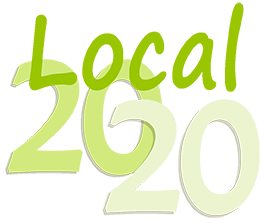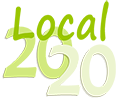Here is Local 20/20’s August Column in the Port Townsend Leader (thank you, PT Leader!). It is copied below.
By Roarke Jennings
Over the past few decades, there has been an accumulation of evidence indicating that human activities are endangering the ecosystems and beauties of the world that we inevitably rely on. Locally, the wildfire smoke affecting Jefferson County recently, the reduction of glaciers in the Olympic Mountains, and these surprisingly hot summer days are all consistent with projections of climate impacts in this area due to the increase of greenhouse gases trapped in the atmosphere. Some of the most enabling factors in our naive progress was the consumption of fossil fuels, which releases greenhouse gases, and the development of large, centralized societies that rely on these fuels to operate. Through this endeavor we have certainly attained great affluence and efficiencies, but we have also polluted our air and water, changed our climate to the detriment of people, plants and animals, and exploited third world peoples. Nowadays, this is becoming more common knowledge with scientific consensus and we are advised to “act locally and think globally.”
However, doing so is not as easy as it may sound. The economy and culture that has arisen from the decades of ignoring our effect on the planet has resulted in limited options for affordable local products and resources. Our food staples often come from thousands of miles away, our energy from the taming of a far-off river or rare-earth metals, and our water from a long, precarious pipe. And this situation all makes sense in this globalized economy where transportation is cheap and our effect on the planet is overlooked.
So, how do we act locally? How do we drastically reduce our reliance on the unsustainable usage of Earth’s resources and the centralized model of business? I believe with the right tools and systems we can stand up, together, as a community and show others that we can shift to a low-impact lifestyle that addresses our needs for food, water, shelter, health, and community. And I believe we can be creative in using local resources to fulfill these needs. So, I invite us to collectively consider small-scale, decentralized solutions that can help reduce our dependence on energy intensive distribution networks and, above all, cultivate a collaborative culture that relies on and enjoys the company of each other, both human and zoological.
A new action group has recently formed in Local 20/20 to explore this opportunity, the Local Initiatives action group. Please join us with your experience, skills, and ideas for action every first Monday of the month at the Pink House. We specifically look to facilitate community action by providing logistical support for the implementation of solution oriented projects. Check the Local 20/20 announcements for meeting times (at L2020.org), and for more ways to get involved and be the change you wish to see.
Roarke Jennings is the recorder for the Local 20/20 council, and a co-leader for the recently established Local Initiatives Action Group.







